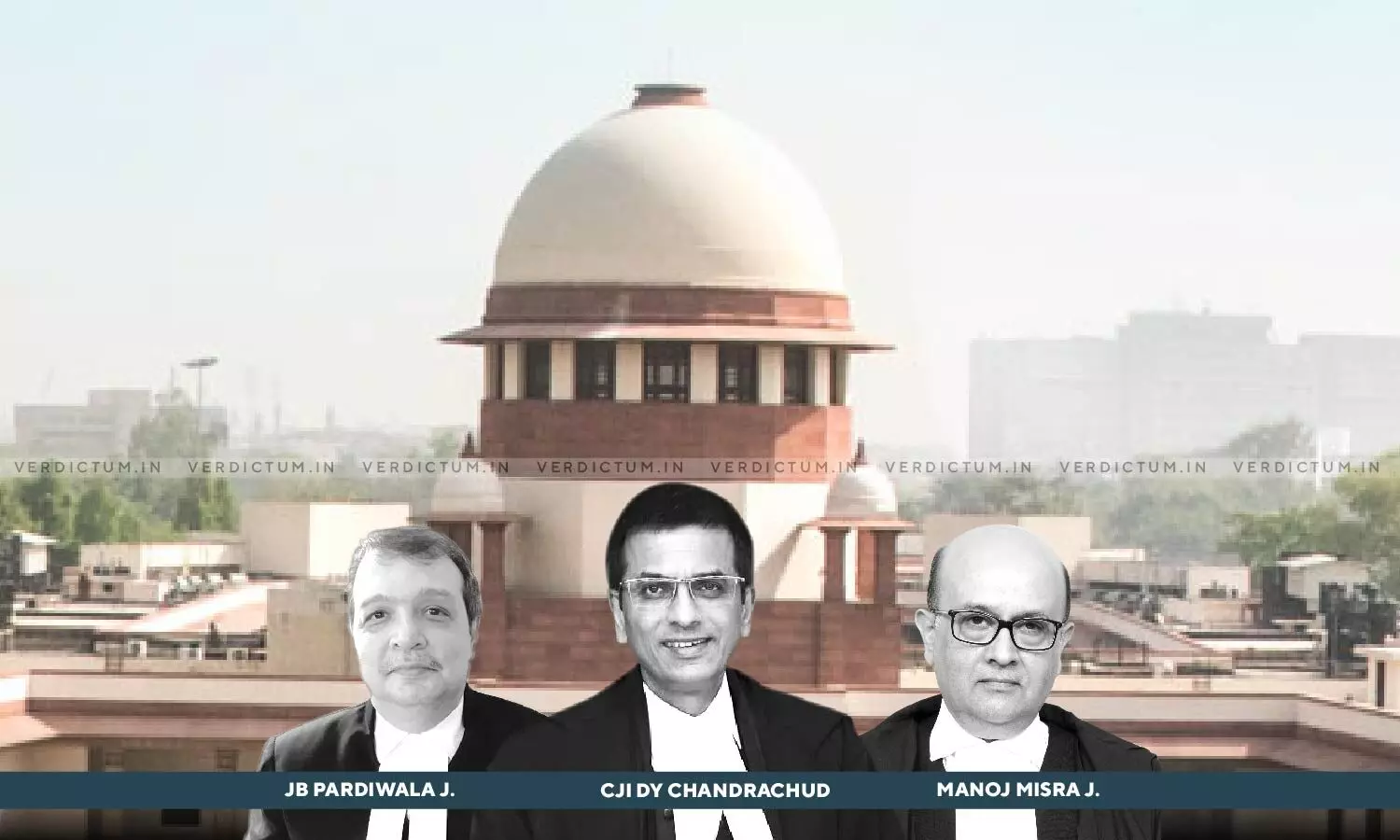
Mere Absence Of Ticket Does Not Negate 'Bonafide Passenger' Claim: Supreme Court Grants ₹8L Compensation To Railway Accident Victim's Sister
 |
|The Supreme Court granted compensation to the sister of a deceased in a railway accident reiterating that the mere absence of a ticket does not negate a claim to compensation.
The Court relied on its decision in Union of India v. Rina Devi (2019) wherein it was held that it was not necessary to produce a valid ticket to claim compensation under Section 124A of the Railways Act, 1989 (the Act).
A Bench of Chief Justice Dhananjaya Y Chandrachud, Justice J.B. Pardiwala and Justice Manoj Misra observed, “In Rina Devi (supra), a two-Judge Bench of this Court considered the question of the party on which the burden of proof will lie in cases where the body of the deceased is found on railway premises. This Court held that the initial burden would be on the claimant, which could be discharged by filing an affidavit of the relevant facts. Once the claimant did so, the burden would then shift to the Railways. Significantly, it also held that the mere absence of a ticket would not negate the claim that the deceased was a bona fide passenger.”
AOR Sneha Kalita appeared for the appellant, while ASG Jayant K Sud represented the respondent.
The sister (appellant) of the victim had filed a claim under Section 16 of the Railway Claims Tribunal Act, 1987 (Tribunal) seeking compensation for the death of her brother. The Tribunal dismissed the claim in 2009 holding that the victim was not a bona fide passenger on the train at the time of his death since he was not carrying a valid ticket. The Gauhati High Court upheld this decision.
The Supreme Court noted that the appellant had duly filed the affidavit stating the facts and adverting to the report arising from the investigation conducted by the respondent, which showed that the deceased was travelling on the train and that his death was caused by a fall during the course of his travel.
“The burden of proof then shifted to the Railways, which has not discharged its burden. Therefore, the presumption that the deceased was a bona fide passenger on the train in question was not rebutted,” the Bench remarked.
The Court concluded that the deceased was a bona fide passenger on the train in question and that he sustained grave injuries leading to his death, due to his fall from the train. “Compensation is therefore due to the appellant,” the Court ordered.
The Court explained that in Rina Devi (supra), the Apex Court held that the claimant would be entitled to interest from the date of the accident and, in case the amount calculated was less than the amount prescribed as on the date of the grant of compensation, the claimant would be entitled to the higher of the two amounts.
Consequently, the Court found no reason to depart from the judgment in Rina Devi (supra) and held that the appellant was entitled to compensation quantified at Rs 8,00,000.
Accordingly, the Supreme Court disposed of the appeal.
Cause Title: Doli Rani Saha v. Union of India (Neutral Citation: 2024 INSC 603)
Appearance:
Appellant: AOR Sneha Kalita
Respondent: ASG Jayant K Sud; Advocates Sachin Sharma, Ishaan Sharma, Gautam Bhardwaj, and Shantu Sharma; AOR Amrish Kumar